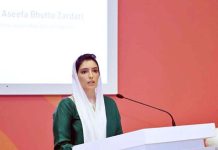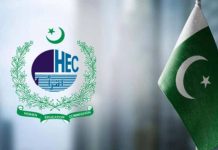ISLAMABAD: Textile industry in Pakistan needs to improve its efficiency and be innovative to make itself regionally competitive without government subsidies and concessions, said experts.
The textile sector in Pakistan is protected as the government provides cheaper energy, exempts import of raw materials of duties and grants easy bank loans. However, experts warned that the government could not provide those concessions for longer periods due to the ailing economy.
Mansoor Ahmed, an industrial analyst, told WealthPK that the textile sector always seeks subsidies on energy and other operations despite the fact that cost of energy has gone up globally and the government is struggling to provide uninterrupted power supply to domestic and commercial consumers. “The industry asks for concessional markup on long-term investment,” he said, adding energy and power accounts for around 30% of the cost of production in basic textiles.
Ahmed said that there are other factors that impact cost of production equally, which the industrialists do not take into account because the cost has gone down compared to regionally competing countries. “Land cost and leasing price in Pakistan is below India, Bangladesh and Vietnam,” he said. “Raw water and steam cost in Pakistan is at least 20% less than its regional competitors,” he added. He maintained that it would be impossible to operate the country’s main exporting sector with subsidies because the higher the exports are the larger the amount of subsidy would be. –INP
“The government should concentrate on those subsectors of textiles that are competitive,” Ahmed said.
He was of the view that the other sectors of the economy have been generally neglected by the economic planners. “These sectors can produce better results with less concessions,” he added.
Dr Sajid Amin, a research fellow at Sustainable Development Policy Institute (SDPI) Pakistan, told WealthPK that the textile sector has to survive and grow without undue concessions and subsidies.
Amin said that the people are paying the price of subsidies that are being provided to the textile sector on electricity and gas. “People bear the power cuts so that interrupted power supply can be supplied to the industry,” he said.
Amin said that textile sector does not grow up to a level it should have been now despite getting the desired protection from the government. “Factories are being run by installing inefficient machines which consume extra amount of energy,” he noted.
Responding to analysts’ views, Shahid Sattar, Secretary General of All Pakistan Textile Mills Associations (APTMA), said that despite various hurdles and problems, the textile sector performs well.
“The textile industry grows despite the decline in cotton production, gas and energy outages, efficiency audits and labour and raw material shortages,” he said.
He said that $5 billion was invested in the textile sector last year and another $3 billion is in the pipeline to be injected in the sector in coming months.
While defending the provision of energy to the textile sector at regionally competitive energy tariffs (RCETs), Sattar said that it has made Pakistani products competitive in the international market.
In Pakistan, regionally competitive power tariffs are 9 cents per kwh and $6.5 per mmBtu for gas/RLNG. “Availability of RCET resulted in an increase in exports by 23% last year and 36% this year,” Sattar said, adding outcomes of increasing exports are far larger than impacts of RCET.
The APTMA secretary general said that textile sector is the largest contributor to exports with 60% share. “The textile industry is responsible for 40% employment of the manufacturing sector as well as nearly 8.5% contribution to GDP.”
“Furthermore, the land, water and steam cost share in the total cost of production is very minimal, so considering and comparing their prices with regional countries is irrelevant,” maintained Sattar.






